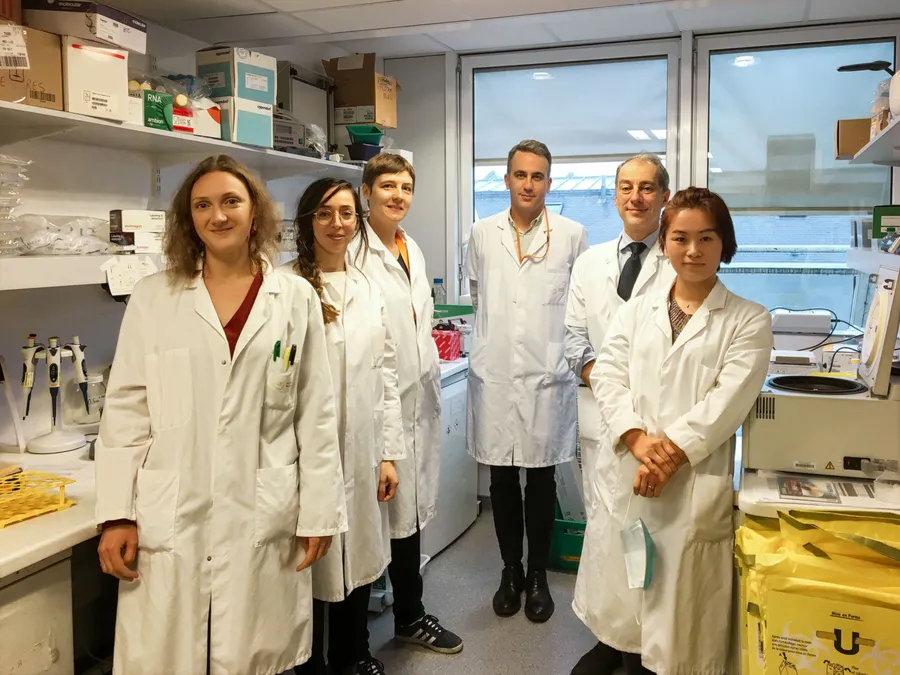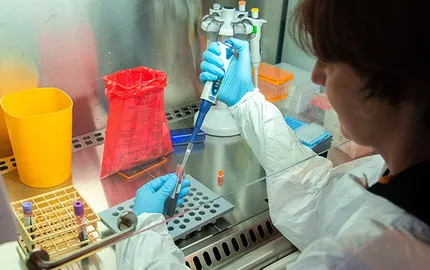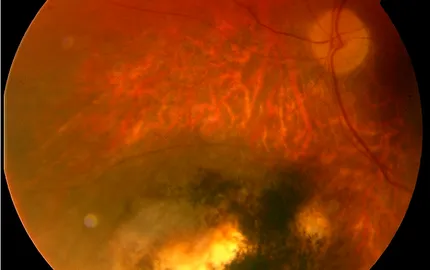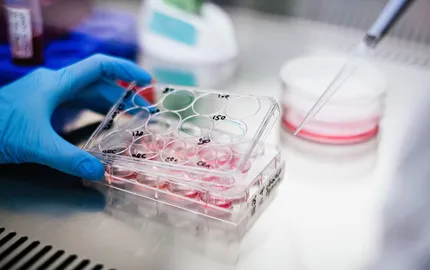Presentation

The laboratory aims at investigating the clinical relevance of tumor biomarkers that are related to the tumor dissemination and metastatic process.
Background
In our institute, the first research program on disseminated tumor cells (DTC) detection in the bone marrow of early breast cancer patients was initiated in the late 90’s; with about a thousand patients included, we constituted one of the largest cohort ever reported and contributed to the landmark report that established bone marrow DTC as a level-of-evidence 1 prognostic factor in early breast cancer (Braun, N Engl J Med 2005).
Bone marrow aspiration being somehow invasive, we then investigated whether the detection of circulating tumor cells (CTC) in the blood could be used as a biomarker of early tumor relapse or progression. Our team was the first to report that a single CTC detected in the blood of early breast cancer patients was associated with a higher risk of metastatic relapse (Pierga, Clin Cancer Res 2008). In patients with metastatic breast cancer, our large multicenter study confirmed that CTC can be used as a prognostic marker and that dynamic early changes during chemotherapy are associated with the treatment outcome (Pierga, Ann Oncol 2012). Our team then coordinated a large European analysis which included about 2,000 patients, allowing CTC to reach a level-of-evidence 1 for clinical validity, and demonstrating its superiority over standard serum markers (Bidard, Lancet Oncol 2014).
Our laboratory recently developed an interest in circulating tumor DNA (ctDNA), which may be used to determine the mutational landscape of a given tumor. While an in-house (MH Stern’s team) developed technique (biPAP-PCR) showed exquisite sensitivity for uveal melanoma mutations (Madic, Clin Cancer Res 2012), we developed other ctDNA techniques (ddPCR and NGS-based techniques). Our latest report showed an excellent agreement for mutation detection between invasive biopsies and ctDNA (Lebofsky, Mol Oncol 2015).
The dissemination of our findings was also performed through key reviews on these research subjects (Bidard, Nat Rev Clin Oncol 2013; Bidard, Sci Transl Med 2013)
Main projects for 2015
- Several multicenter interventional trials are ongoing to demonstrate the clinical utility of CTC detection:
- CirCe01: randomized phase 3 coordinated by our team, metastatic breast cancer.
- STIC CTC: randomized phase 3 coordinated by our team, metastatic breast cancer.
- CirCe T-DM1: single arm phase 2 coordinated by our team, metastatic breast cancer.
- TREAT CTC: randomized phase 2 coordinated by EORTC, early breast cancer.
- International MEta-analysis of breast cancer patients treated by NEOadjuvant chemotherapy (IMENEO study).
- Observational studies on ctDNA clinical validity:
- CirCA01 prospective cohort: TP53 mutations detection in BRCA01 mutation carriers.
- Other cohorts collected in “CTC-CEC-ctDNA” and “ALCINA” umbrella protocols.
- Ancillary ctDNA detection in national studies (e.g. SAFIR02 breast, COMET02 coordinated by UNICANCER)
- Technological developments on CTC and ctDNA detection










 San Antonio Breast Cancer Symposium - 12 décember 2022
San Antonio Breast Cancer Symposium - 12 décember 2022 New study in Annals of Surgery - 27 February 2023
New study in Annals of Surgery - 27 February 2023

